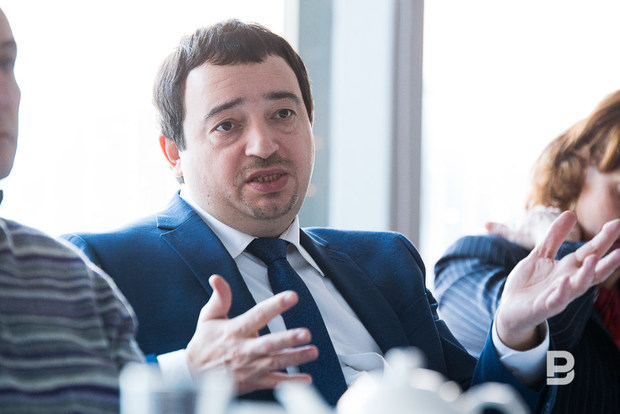To fly like in Europe: insurance payout to be increased, but tickets to rise in price
Experts of Realnoe Vremya suggest that Russia's joining the Montreal Convention will discipline the carriers, but will lead to higher prices
The amount of compensation for death and health injury of passengers of international flights will increase up 8.8 million rubles, and for the loss of baggage one can expect a compensation at 88.000 rubles. All this will happen after Russia's joining the Montreal Convention for the Unification of Certain Rules for International Carriage by Air, which is expected in the near future. Realnoe Vremya experts believe that despite obvious advantages, there is one drawback for passengers — the ticket price will be increased.
Compensation at maximum level
Russia may soon join the Montreal Convention for carriage by air. According to Izvestia, the special State Duma Committee on International Affairs was to recommend the adoption of the bill on February 16. Currently, the Convention has more than 130 states-participants.
For passengers of international flights, this means an increase in insurance payments in case of emergency. If now the amount of compensation for loss of baggage by the carrier does not exceed 600 rubles per 1 kg of baggage and 11.000 rubles for hand baggage, after the ratification of the Montreal Convention its amount will be increased up to 1.500 rubles per 1 kg of baggage and up to 88.500 rubles for a piece of hand baggage. At the same time, the airline will be obliged to compensate the harm caused on the basis of the completest reparation.
The amount of compensation for the delay of flight will be increased up to 367.000 rubles (now it is 25% of the minimum wage). The upper limit of compensation in case of death of a passenger or harm to his health will be increased up to 8.8 million (for now it can not exceed 2 million rubles). The airline will be exempt from liability if they prove that the damage was caused not due to their fault.
Besides, legal costs for the passenger will be reduced, he will be able to sue the carrier at their place of residence. The Convention specifies the time for filing claims against airlines: in the case of loss of baggage — not later than seven days from the date of its receipt, and if the suitcase is never found, then not later than 21 days after the date of the flight.

Is it good for passengers as well as for airlines?
The ratification of the Montreal Convention is the necessary step and measure that disciplines the carriers, considers Ramil Miftakhov, the CEO of the company Persona Grata and the president of the Association of travel agencies of the Republic of Tatarstan.
''Today, the European payments, in the case of accidents or lost baggage or flight delays, are more rigid. The airlines have to comply with them, they should fly and don't lose the baggage, otherwise, they carry serious losses. We often have the following situation: a private carrier leads a very large number of flights, and between them the interlining is very short. If a plane breaks down, the whole chain collapses. The replacement of aircraft is needed, and if it's a big board, they are many for the most part.
An opinion in favour of Russia's joining the Montreal Convention was also expressed by Petr Trubaev, Director General of air company UVT Aero.
''The Convention aims to protect passenger rights and compensation for the losses that they may incur. So one should agree to these changes and support them. What is more, 130 countries are already participants of this Convention,'' says Trubaev.
However, according to Azamat Sabirov, the director of the company AVT, some provisions of the Convention are not always applicable to the Russian practice: ''How necessary is it? My opinion is ambivalent — for passengers it is good, maybe, and it is also good for airlines, so they were more restrained making their schedules. To some extent, this may affect the number of flights. But the accuracy of the schedule does not always depend on the carrier. You need to understand that not all airports are private, many are public. The quality of the runways and airport equipment are often different from European ones. I think not all the incidents and delays are the fault of the airlines.''
Sabirov cited an example of the recent air incident: ''We remember a case when due to the unclear situation at the airport of Kaliningrad an Aeroflot plane skidded off the runway. It is unclear whether the weather was bad, or it was just poorly cleaned. In Novosibirsk, an S7 plane made a drifting: it was turned 180 degrees — is it the fault of the airline or of the airport?''

''In the end, it will still fall on us: the ticket price will rise''
''If to consider the payments from the point of view of the airlines, the question arises how to compensate for the possible costs? The answer is obvious: to include them in the ticket fare. Let the price increase will be small, for example, about 5%, but still, I think that this will happen,'' says Peter Trubaev.
''The problem is that there is no big competition among air carriers. So the price may rise,'' confirmed Azamat Sabirov.
According to Ramil Miftakhov, the amount of insurance payment increase will, in fact, be included in the ticket price.
''In the end, it will still fall on us: the cost of the ticket will increase. Any change that entails a rise in the cost of services will eventually affect the price of services or the product. Airlines will not shift this responsibility on themselves, and I think that will all work according to the standard scheme, and the ticket price will rise by 500-1.000 rubles, perhaps 2.000 rubles, depending on distance,'' he explained.